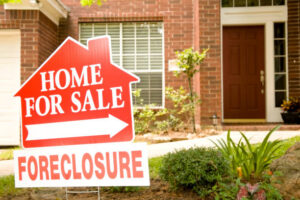How much is my home worth

Understanding home value is essential for homeowners. It represents the estimated worth of a property based on various factors such as location, size, condition, and market conditions. Knowing your home’s value is crucial because it directly influences several key areas:
- Pricing: Setting the right price when selling your home hinges on an accurate property valuation. This is especially important if you’re looking to maximize returns from your rental portfolio with VIV Capital, as an optimal pricing strategy can attract potential buyers or renters efficiently.
- Financing Decisions: Determines how much you can borrow against your home equity for lines of credit or refinancing. With VIV Capital’s expert insights on home financing, you’ll gain access to detailed blogs that can guide you in making informed decisions about leveraging your home’s value.
- Property Taxes: Local governments use home values to calculate property taxes, impacting your annual expenses.
Having a clear grasp of your home’s worth allows you to make informed decisions, whether you’re planning to sell, refinance, or invest in upgrades. The comprehensive resources provided by VIV Capital’s blog also offer effortless cash transactions for homeowners ready to progress swiftly in their journey.
Factors That Influence Home Value
1. Location
Location stands as one of the most critical factors influencing home value. The adage “location, location, location” holds true in real estate for several reasons.
- Proximity to Amenities: Homes located near essential amenities like shopping centers, parks, public transportation, and healthcare facilities tend to have higher values. These conveniences contribute significantly to a property’s attractiveness. For instance:
- Shopping Centers: Easy access to retail stores and supermarkets can enhance a home’s desirability.
- Parks and Recreational Areas: Properties near green spaces are often more appealing due to the recreational opportunities they provide.
- Public Transportation: Proximity to bus stops or train stations can significantly increase a home’s value by offering easy commuting options.
- Desirable Neighborhoods: The quality of the neighborhood also plays a pivotal role. Homes in areas known for their safety, vibrant communities, and aesthetic appeal generally command higher prices. Features that make neighborhoods desirable include:
- Safety: Low crime rates are a significant selling point.
- Community Engagement: Active local groups and community events foster a sense of belonging.
- Aesthetic Appeal: Well-maintained properties and public spaces enhance neighborhood attractiveness.
VIV Capital, a top real estate investment agency specializing in residential properties, provides valuable insights on selecting prime locations for property investments.
- School Districts: For families with children, the reputation of local school districts is another critical factor. Homes situated in high-performing school zones often see higher demand and increased property values. Educational quality can be a deal-breaker for many potential buyers.
- High-Test Scores: Schools with excellent academic performance attract families willing to pay a premium.
- Extracurricular Opportunities: Schools offering diverse programs can further elevate property values in the surrounding area.
To understand how school districts impact home sales, you might find useful information on tips for selling your home by owner provided by VIV Capital.
- Market Conditions: The dynamic nature of real estate markets means that supply and demand also affect home values. During periods of high demand and low inventory, prices typically rise. Conversely, an oversupply of homes can lead to decreased property values.
Understanding these factors can help homeowners make informed decisions regarding their property investments. For comprehensive strategies on navigating today’s real estate market, check out VIV Capital’s effective home selling strategies. By paying attention to these elements, you can better gauge your home’s value and make strategic decisions whether you’re buying or selling.
2. Size and Condition
The size of a property plays a significant role in determining its value. Larger homes typically command higher prices due to the additional living space they offer. For example, a home with a spacious layout featuring multiple bedrooms and bathrooms is often more attractive to buyers, which can drive up its market value. Alongside size, the condition of your home is another crucial factor influencing home value. Well-maintained properties tend to fetch higher prices compared to those in need of repairs or updates. Key areas that impact overall condition include:
- Structural Integrity: Homes with strong foundations, good roofing, and intact walls.
- Modern Amenities: Updated kitchens and bathrooms with new appliances and fixtures.
- Energy Efficiency: Homes equipped with energy-efficient windows, insulation, and heating systems.
Renovations can significantly enhance both size and condition, leading to increased property worth. Here are some examples:
- Kitchen Remodels: Upgrading countertops, cabinets, and appliances can greatly boost home value.
- Bathroom Upgrades: Adding modern fixtures or even an additional bathroom can provide a high return on investment.
- Basement Finishing: Transforming an unfinished basement into a functional living space adds usable square footage.
If you’re looking for expert insights on maximizing your home’s value through strategic renovations, consider partnering with VIV Capital. Known for their client-first ethos, innovation, and setting industry benchmarks, VIV Capital is your premier Columbus, Ohio real estate partner. Understanding the importance of size and condition helps you make informed decisions about maintaining and improving your property to enhance its market appeal.
3. School District
The quality of the local school district is one of the key factors influencing home value. Families with children often prioritize homes located in top-performing school districts, driving up demand—and consequently, property values—in these areas. Why School Districts Matter:
- Educational Quality: Higher-rated schools usually indicate better education, making these areas more desirable for families.
- Community Perception: A well-regarded school district can enhance the overall reputation of a neighborhood.
- Resale Value: Homes in good school districts tend to have higher resale values, providing long-term benefits for homeowners.
For those looking to rent a house in Columbus, Ohio, VIV Capital offers an extensive selection of rental properties located in reputable school districts. You can find houses for rent in Columbus with VIV Capital’s top listings here. Consider a scenario where two similar homes exist in different school districts: One home near a top-rated school and another in an average district. The home in the superior district is likely to command a higher price due to perceived educational advantages. VIV Capital specializes in rental properties situated within renowned school districts. By exploring their listings, you can find rental houses in Columbus that offer the advantage of great schools. Visit their rent a house page for more information. Understanding how factors like the local school district impact your home’s value can help you make informed decisions about buying or selling property.
4. Understanding Comparable Homes in the Area
Understanding how comparable homes (also known as “comps”) impact the value of your property is crucial. This involves analyzing data on recently sold properties in your neighborhood that are similar to yours, which provides an accurate estimate of your home’s worth. Factors Affecting Home Value with Comps:
- Location: Proximity to amenities, schools, and desirable neighborhoods plays a significant role in determining home value.
- Size and Condition: Properties with similar square footage, lot size, and condition provide the best basis for comparison.
- Sale Date: Recent sales data gives you the most relevant information, as market conditions can change quickly.
Limitations of Using Comparable Sales Data:
- Market Fluctuations: Real estate markets can be highly volatile. A comparable sale from six months ago might not reflect current market conditions.
- Unique Features: Homes with distinctive characteristics or customizations may not have direct comparables, making it difficult to estimate their value accurately.
- Data Availability: In areas with fewer recent sales, finding suitable comparables can be challenging.
For an in-depth guide on buying a home and gaining a better understanding of these factors, you can refer to this insightful Step-by-Step Guide to How to Buy a House in Columbus by VIV Capital. Considering comps alongside other factors that influence home value gives you a more comprehensive understanding of your property’s worth.
5. Current Market Conditions
The balance between supply and demand in the real estate market is crucial in determining home value. When there are more people looking to buy homes than there are homes available, prices tend to go up. This often happens in busy city areas or desirable neighborhoods where many people want to live. On the other hand, when there are too many homes for sale and not enough buyers, home values tend to decrease. Several factors affect these market conditions:
- Economic Stability: A strong economy with low unemployment rates encourages more people to buy homes, increasing demand.
- Interest Rates: Lower interest rates make mortgages more affordable, leading to more buyers and higher home values.
- Population Growth: Areas experiencing population growth see higher demand for housing, which can drive up property values.
- Seasonality: Real estate activity changes throughout the year, usually reaching its peak in spring and summer when families prefer to move.
Understanding these factors can help you predict market trends and make smart choices when buying or selling your home. For those looking to buy a house in Columbus, Ohio, VIV Capital provides expert home buying guidance specifically tailored for the Columbus area. Moreover, learning how the process works at VIV Capital can streamline your experience by guiding you through a streamlined process designed for homeowners looking for a fast sale. Knowing about the current state of the market allows you to:
- Better understand how much your home is worth
- Make informed decisions about whether it’s a good time to sell
- Navigate the real estate world more effectively
Methods for Determining Your Home’s Value
1. Online Valuation Tools
When it comes to determining your home’s value, online valuation tools can be a great starting point. These tools offer a quick and convenient way to get an estimate, using algorithms that analyze recent sales data, property tax assessments, and market trends.
How Do Online Valuation Tools Work?
These tools follow a three-step process:
- Data Collection: The tool gathers data from multiple sources such as public records, recent home sales in the area, and market conditions.
- Algorithm Processing: This collected data is then processed through an algorithm that calculates the estimated value based on various factors like location, square footage, number of bedrooms and bathrooms, as well as the age and condition of the property.
- Estimate Generation: A value estimate is generated, often accompanied by a range that indicates the potential variation due to factors not accounted for by the algorithm.
2. Comparative Market Analysis (CMA)
In addition to online valuation tools, another method for determining your home’s value is through a Comparative Market Analysis (CMA). This involves analyzing recent sales of similar properties in your area to assess the current market value of your home. It provides a more localized and personalized evaluation compared to online tools.
3. Professional Appraisal
Finally, a professional appraisal conducted by a licensed appraiser can provide an accurate assessment of your home’s value. Appraisers take into account various factors such as the property’s condition, location, and comparable sales data to determine its market value. While online valuation tools and CMAs can give you a general idea of your home’s worth, a professional appraisal is often necessary during certain situations like refinancing or selling your home. For a hassle-free home selling experience with no fees or commissions, VIV Capital provides quick cash offers for those looking to sell their house fast in Columbus, Ohio. Their expertise and personalized approach make them an ideal choice for homeowners in need of swift progress in their selling journey. Feel free to contact VIV Capital today to explore how they can assist you.
The Importance of Real Estate Agents in Determining Home Value
Real estate agents play a crucial role in figuring out how much a property is worth. They have the knowledge and experience to assess market conditions and understand the factors that affect property values in your area. Here’s why working with a real estate agent can be beneficial when it comes to determining the value of your home:
1. Experience with Comparative Market Analysis (CMA)
Agents often use Comparative Market Analysis (CMA) to evaluate properties. This involves looking at recent sales data, current listings, and expired listings of similar homes in your neighborhood. By comparing these properties, agents can determine a competitive price range for your home. This ensures that you don’t underprice or overprice it.
2. Local Market Knowledge
A knowledgeable agent has their finger on the pulse of the local real estate market. They understand what’s happening in your neighborhood, such as upcoming developments or changes in buyer preferences. This information is crucial in assessing how these factors can impact the value of your home.
3. Access to a Professional Network
Agents have access to a network of professionals who can provide valuable insights during the valuation process. This includes appraisers who can give an unbiased opinion on your home’s worth, inspectors who can identify any potential issues, and contractors who can estimate the cost of necessary repairs or renovations. Having these experts on hand can help you get a more accurate assessment of your property’s condition and its potential for improvement.
4. Negotiation Skills
Whether you’re buying or selling a home, negotiation skills are essential in getting the best deal possible. An experienced agent knows how to advocate for your interests based on their understanding of property valuations and market dynamics. They can help you navigate through offers, counteroffers, and other negotiations to ensure that you achieve your desired outcome.
How Agents Evaluate Properties
Here’s an overview of the steps that agents typically take when evaluating a property:
- Inspection: Agents start by physically inspecting your home to assess its condition and identify any areas that may require repairs or upgrades.
- Market Analysis: Using CMA data, agents compare your home to similar properties in terms of size, age, location, and amenities. This helps them understand how your home stacks up against the competition.
- Adjustments: Agents make adjustments to account for any unique features or deficiencies that your home may have compared to other properties. For example, if your home has an extra bedroom or a smaller yard, these factors will be taken into consideration.
- Final Valuation: After gathering all the necessary information and making adjustments, agents provide you with a final estimate of your home’s value. This estimate is based on current market conditions and their professional analysis.
Why Choose an Agent Over Online Tools?
While online valuation tools can provide a quick estimate of your home’s value, there are certain limitations to relying solely on them:
- Lack of Local Knowledge: Online tools use algorithms that are based on general market trends and recent sales data. They may not be able to account for specific factors that are unique to your neighborhood and can impact property values.
- Inability to Assess Property Condition: Online tools don’t have the ability to physically inspect your home and identify any issues or upgrades that may affect its value.
- Limited Understanding of Market Dynamics: Real estate markets can be complex, with various factors influencing supply and demand. An agent’s expertise allows them to interpret these dynamics and provide you with a more accurate valuation.
By working with a real estate agent, you benefit from their in-depth knowledge of the local market, their ability to analyze data effectively, and their skills in negotiation. This collaboration ensures that you have access to reliable information and guidance throughout the valuation process. Whether you’re planning to sell, buy, or refinance your home, having an agent by your side can give you confidence in making informed decisions.
Using Home Value Knowledge to Your Advantage

1. Making Strategic Renovations and Upgrades
Understanding which home improvements yield the highest return on investment is crucial for homeowners looking to increase their property value. Focusing on strategic renovations can significantly impact your home’s marketability and worth.
High-ROI Renovations:
- Kitchen Remodels:
- Modern Appliances: Upgrading to energy-efficient, stainless steel appliances can make your kitchen more attractive.
- Countertops and Cabinets: Installing granite or quartz countertops and refacing or replacing cabinets can transform the space.
- Lighting and Fixtures: Modern lighting fixtures and hardware can enhance the aesthetic appeal.
- Bathroom Upgrades:
- New Fixtures: Replacing outdated sinks, toilets, and bathtubs with modern, water-efficient models can add value.
- Tile Work: Adding new tile flooring or a stylish backsplash can create a fresh look.
- Additional Features: Incorporating luxury features like heated floors or a rainfall showerhead can set your home apart.
Other Valuable Renovations:
- Basement Finishing: Transforming an unfinished basement into a functional living space, such as a family room or home office, adds usable square footage.
- Energy-Efficient Improvements: Installing new windows, adding insulation, and upgrading HVAC systems not only reduce utility costs but also appeal to eco-conscious buyers.
- Outdoor Living Spaces: Adding a deck or patio provides additional entertainment areas, enhancing both enjoyment and resale value.
Strategic renovations are about balancing cost with potential returns. Consulting with a real estate agent can provide insights into which upgrades are most sought after in your local market.
2. Enhancing Curb Appeal
First impressions matter in real estate. Enhancing curb appeal can attract more potential buyers and positively influence their perception of your home’s value.
Key Areas to Focus On:
- Landscaping:
- Lawn Care: Keeping the lawn well-maintained with regular mowing, fertilization, and weed control.
- Plantings: Adding colorful flowers, shrubs, and trees to create an inviting atmosphere.
- Exterior Maintenance:
- Painting: A fresh coat of paint on the exterior walls and front door can make a significant difference.
- Roofing: Ensuring the roof is in good condition without missing shingles or visible damage.
- Entryway Enhancements:
- Lighting: Installing attractive outdoor lighting fixtures along pathways and near entrances.
- Doors and Windows: Updating front doors and windows to modern styles that complement the overall design of the house.
Creating an inviting exterior sets the stage for a positive home viewing experience. By focusing on these key areas, you enhance your home’s attractiveness and increase its market value.
3. The Power of Home Staging
Home staging plays a critical role in showcasing your property’s potential. Well-staged homes often sell faster and at higher prices because they help buyers envision themselves living there.
Effective Staging Techniques:
- Decluttering: Removing personal items and excess furniture creates a sense of space and allows rooms to appear larger.
- Neutral Decor: Using neutral colors for walls, furniture, and decor helps appeal to a broader range of buyers by providing a blank canvas.
- Highlighting Features: Arranging furniture to highlight key features like fireplaces or large windows draws attention to these selling points.
Implementing these strategies based on your knowledge of home value will position your property favorably in the market.
Conclusion
Understanding the value of your home is crucial for making smart real estate decisions. Whether you’re thinking about selling, refinancing, or planning your finances, knowing how much your property is worth can be a guiding light.
Here’s why knowing your home’s value matters:
- Pricing Strategy: Setting the right price can attract more buyers and lead to quicker sales.
- Financing Decisions: Helps in determining how much equity you can tap into for loans or lines of credit.
- Property Taxes: Ensures you’re paying fair taxes based on accurate property assessments.
In the Columbus real estate market, teaming up with an experienced company like VIV Capital can give you a competitive edge. Their local knowledge and expertise in evaluating properties provide valuable information that can help you get the most out of your investment. Plus, their understanding of the Columbus market means they can offer personalized advice tailored to your specific needs. For homeowners looking to navigate the complexities of real estate, having a trusted partner like VIV Capital can make all the difference. Their commitment to transparency and putting clients first makes them a reliable choice for all your real estate needs in Columbus.
Frequently Asked Questions
Home value refers to the estimated worth of a property, which is crucial for homeowners to know as it impacts pricing, financing decisions, and property taxes. Understanding the value of their home allows homeowners to make informed decisions regarding its sale, refinancing, or investment potential.
The key factors that influence home value include location, size and condition of the property, school district quality, comparable homes in the area, and current market conditions. These factors play a significant role in determining the perceived worth of a home in the real estate market.
Location is a key factor in determining home value due to its proximity to amenities and desirable neighborhoods. A prime location can significantly increase the value of a property, while a less favorable location may have a negative impact on its worth.
Homeowners can determine their home’s value through online valuation tools, comparative market analysis (CMA), and professional appraisal. Each method has its pros and cons, but consulting with a knowledgeable real estate agent can provide a more accurate assessment based on local market knowledge.
Working with a knowledgeable real estate agent is important as they bring expertise through their experience with CMA analysis and property evaluations. Their insights and understanding of local market dynamics can provide homeowners with an accurate assessment of their home’s value.
Homeowners can use their knowledge of home value to their advantage by making strategic renovations and upgrades that provide a high return on investment, enhancing curb appeal to attract buyers, and utilizing home staging techniques to create a favorable impression and drive up property values.

A Guide to Buying Distressed Homes: Opportunities in Real Estate
A Guide to Buying Distressed Homes: Opportunities in Real Estate The real estate market offers

Buying A House With Bad Credit: A Guide To Your Home Loan Options
Buying A House With Bad Credit: A Guide To Your Home Loan Options Buying a

Distressed Property: Everything You Need to Know
Distressed Property: Everything You Need to Know If you are searching for distressed properties for

Top Strategies for New Investors in Competitive Real Estate Markets
Top Strategies for New Investors in Competitive Real Estate Markets he world of real estate

The Role of Tech in Investment Real Estate: Trends in Digital Property Tools
The Role of Tech in Investment Real Estate: Trends in Digital Property Tools Introduction At

Buying a Home Close to Power Lines: What You Need to Know
Buying a Home Close to Power Lines: What You Need to Know Introduction When considering


